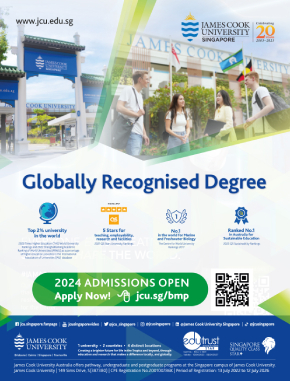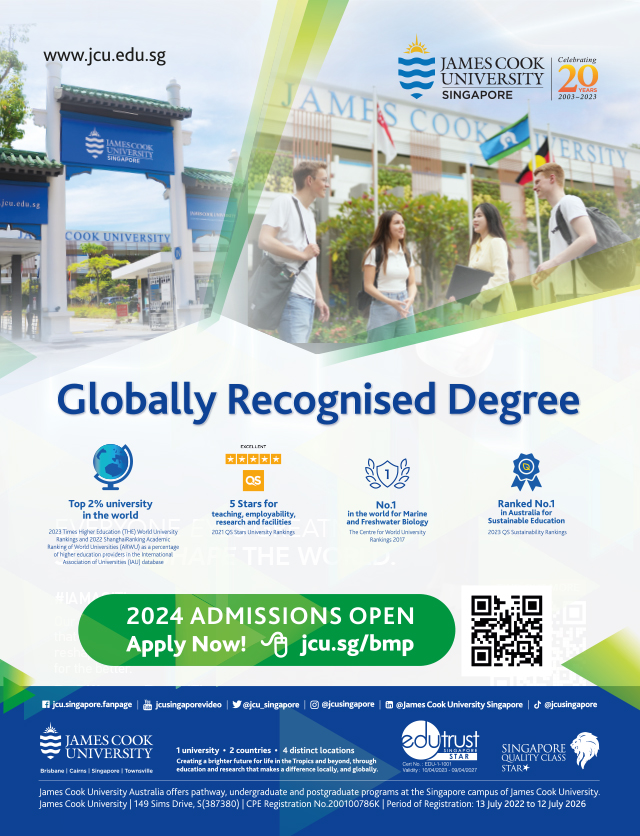Left: Megan Tan (Chen Qi) is a student at James Cook University, where she is currently pursuing a Master of Psychology (Clinical). Prior to this, she received her Bachelor of Psychological Science and Bachelor of Psychological Science (Honours) from the same university. Her previous work experience includes being a National CARE Hotline Coordinator at the Ministry of Social and Family Development.
Right: Fong Jing Yi Shani is currently getting a Master of Guidance and Counselling at James Cook University. She has also been the recipient of a Bachelor of Psychological Science from James Cook University. Before she was a student, she held positions as a Surveyor with Changi Airport and a Sports Therapist.
James Cook University (JCU) stands as a guiding light of learning, holding the distinction of being the first private education institution to secure the coveted EduTrust Star quality mark. This accolade reflects the highest level of quality assurance achievable under the EduTrust Certification Scheme, bestowed by the Council for Private Education. Megan Tan (Chen Qi) and Fong Jing Yi Shani are two individuals who have had extraordinary journeys at JCU.
Megan and Shani have both completed their Bachelor of Psychological Science at JCU, a programme accredited by the Australian Psychology Accreditation Council (APAC). But their aspirations don’t stop there. JCU is the only Australian institution in Singapore to be recognised with ‘University’ status, allowing its foundational education to align with global standards.
Currently, they’re pursuing a higher education to refine their skills. Megan is immersed in the realm of Master of Psychology Clinical after completing a Bachelor of Psychological Science (Honours), while Shani is currently taking up a Master of Guidance and Counselling. There’s no doubt they’re catalysts for change, poised to make a positive impact in the fields of psychology and counselling.
We speak with Megan and Shani to learn about their personal growth and academic pathways.
Can you share about your chosen educational pathways?
Megan: To help individuals facing complex challenges, I needed to enhance my knowledge and expertise in psychology. This led me to pursue a Master of Psychology (Clinical) programme. The comprehensive training equips me with the advanced competencies and practical experience necessary to eventually offer evidence-based treatments.
Shani: The Bachelor of Psychological Science focuses on diagnosis and research methodologies, while the Master of Guidance and Counselling emphasises practical skill sets involved such as building a strong rapport with clients. By combining these approaches, I recognised the significance of the scientific basis behind individual thought processes and the importance of actively listening and being present for clients.
What stands out to you about James Cook University?
Megan: JCU’s professors combine expertise with a genuine commitment to student success, fostering an approachable and supportive learning environment. The university’s research facilities provided me with opportunities to experience what it is like to be on the other side of the research process. Participating in various studies conducted by my peers and other researchers within the university has allowed me to receive practical exposure to different research designs and methodologies, which provided a more tangible understanding of what I learned in class.
Shani: Students are provided resources and tools to conduct research in psychology and counselling. JCU also takes in feedback after every trimester and is receptive to it as they actively make changes to course structure and development support systems based on the needs of students – which change with time.



